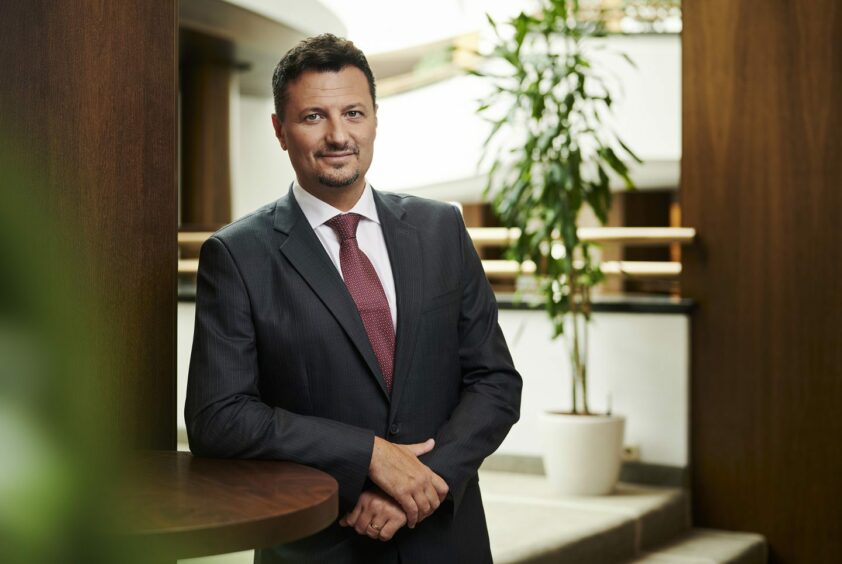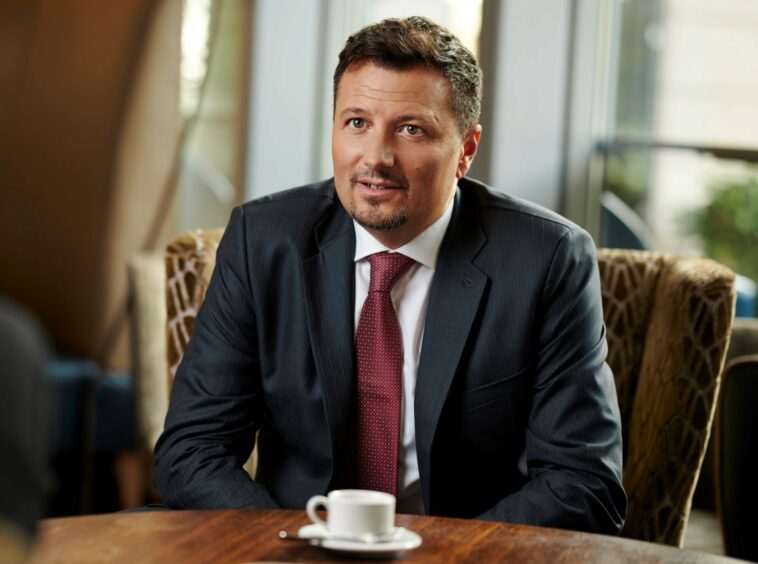
“The issue of supply security caused by the Ukraine crisis that Europe is currently facing will speed up the green transition,” said Benjamin Lakatos. According to MET Group’s CEO, ongoing discussions about energy transition have now become more balanced.
The interview was originally published in Handelszeitung.
Soaring energy prices and security of supply: the two topics that dominate the discourse surrounding the European energy markets which are currently facing an unprecedented situation. Some estimates say that consumers across the EU’s 27 member states will have to spend around 1 trillion euros more on power and gas per year, the equivalent of 5 to 6% of the entire bloc’s GDP.
And even though the crisis so far has not caused any significant supply shortages in Europe, the risk of a major supply security shortage has risen considerably. “The probability of such an event occurring will be higher this winter than it was one or two years ago. That cannot be attributed to price levels alone, but rather to system-wide instability and the Ukraine conflict itself,” stated Benjamin Lakatos.
According to the founder of Swiss-based MET Group, the crisis will steer green ambitions in a more realistic direction. “At last, we are not just talking about where we want to be in 2050, but many companies have now actually begun to take specific actions. A much more realistic and balanced debate has started, in which issues such as independence through supply security and affordability are taken into account,” he added.
It is not enough to make sure something is ‘green’, it also needs to be cost-efficient as well. As for the time horizon, the question we are facing today is what can we realistically achieve within three years in order to solve the energy dependency problem, whilst also remaining green in the process.
MET Group actively contributes to the energy transition in a number of ways, namely through its Green Assets division which is tasked with developing, building and operating wind and solar power plants across Europe. The Flexibility Assets division also forms an integral part of the picture since natural gas, as a transition fuel, has an important role to play in power generation and MET is proficient in operating gas-fired power plants with high efficiency, supporting the green transition.
Due to the unpredictability of weather-dependent renewable power production, electricity networks need so-called balancing energy in order to operate smoothly, and the main and obvious source for this type of generation is natural gas. “If we can operate gas plants in a way to produce just the right amount of balancing energy, Europe will require less balancing capacity overall. This means we could forgo building one or two new power plants,” Lakatos explained.
Europe will need to combine a range of tools in order to secure its energy independence, and LNG also has a key role to play in this. New LNG import terminal projects are progressing rapidly across Europe, including in Germany and Poland. LNG could, of course, provide a complete energy supply solution for Europe in itself, but that would take six to eight years and require a disproportionate amount of resources, the head of MET Group warned.
While energy companies are juggling with existing and new energy sources, financing current energy prices is a huge burden for consumers who are evidently shocked by the unusually high price environment. Gas prices that languished around EUR 5 per megawatt hour (MWh) during the Covid pandemic have shot up to above EUR 100 (with some spikes as high as EUR 350 per MWh), which means that industry players must also raise extra financing. The predominant issue for energy traders then becomes the need for increased financing.
“Even the largest players are raising additional funds from the market and are adjusting their products, including abandoning fixed price offers to consumers,” Lakatos said. Consumers are also faced with further issues, as in most countries they will not be offered fixed-price contracts without providing financial guarantees.
According to MET Group’s CEO, this has led to something of a game of ping pong with the arising issues. The first problem, that of extra financing needs, has impacted the traders who, in turn, have created the second problem for consumers by adjusting their products, which was then bounced back again to the traders as many consumers have accordingly faced serious risks of insolvency.
There are news of energy traders going bankrupt all over Europe. They were either left unpaid or could not finance their positions, or their risk management practices were less than sufficient for the current environment. Right now, not a single energy company in Europe could say they are not exposed to significant risks.
MET has weathered the crisis without resorting to outside help which, as Benjamin Lakatos concluded, should be attributed to the company’s efficient risk management processes and agile business culture.
Recommended for you

 © Supplied by MET Group
© Supplied by MET Group